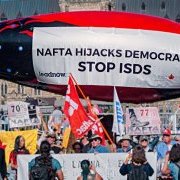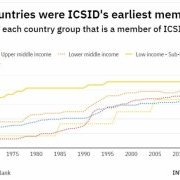23-Apr-2021
Inequality.org
Pakistan is the latest to start withdrawing from international treaties that give corporations the power to sue governments over environmental and public interest regulations.
20-Apr-2021
International Arbitration
One of the most significant early proposals for a multilateral agreement to protect private foreign investment was launched in 1957 by groups of European business people, and lawyers.
14-Apr-2021
Stock Market Wire
Mining group Pathfinder Minerals said a dispute over the ownership of a mining title in Mozambique could see it incur estimated losses of more than $621.3 million.
12-Apr-2021
Business Standard
Cairn Energy has offered to invest the entire award money in India, which includes the principal amount of $1.2 billion and interest of $500 million if the government agrees to enforce the award.
8-Apr-2021
Investment Monitor
From colonisation to investor-state dispute settlements, rich countries have sought to exploit and influence their poorer counterparts for centuries, but how did globalisation in its current form come to be?
6-Apr-2021
Investment Monitor
Investment treaties largely replaced colonial gunboats as a way to continue to exploit the resources of foreign countries.
1-Apr-2021
Global Justice Now
Corporate courts are an unjust mechanism that can block climate action. The UK should reject them.












